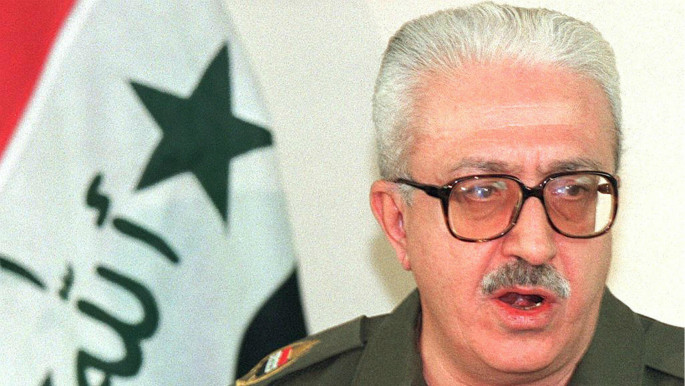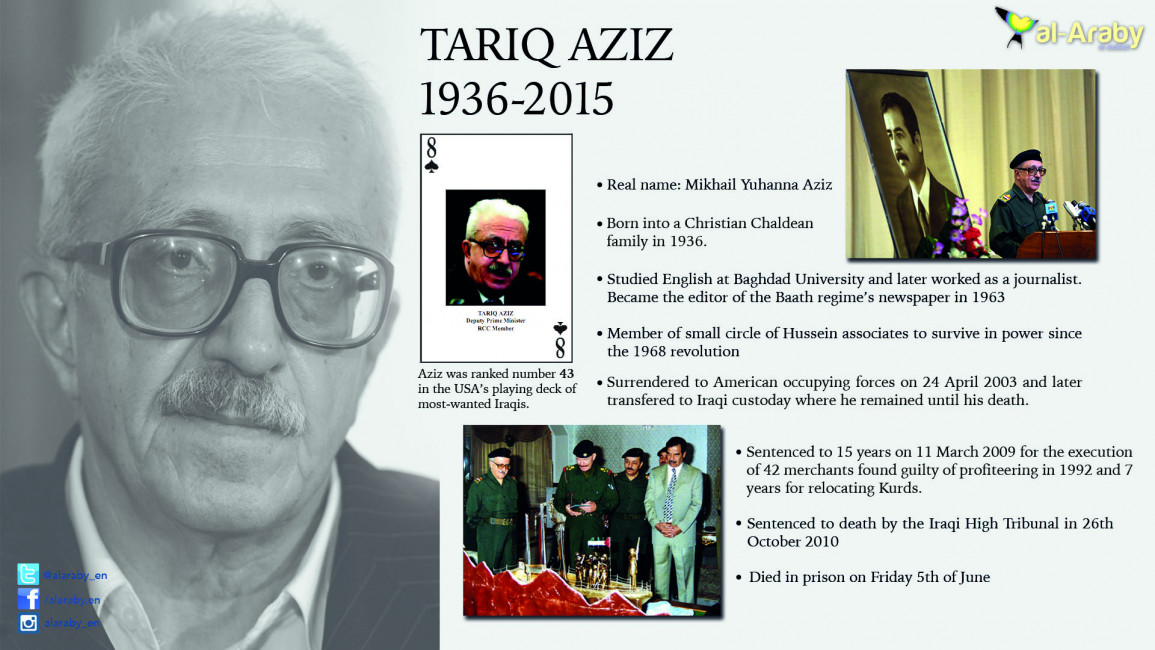Tariq Aziz, Saddam Hussein's chief diplomat, dies at 79
Tariq Aziz, former Iraqi leader Saddam Hussein's right-hand man, has died on Friday from a heart attack. He was 79.
The former Iraqi foreign minister and deputy prime minister passed away in prison in the southern town of al-Nasriya, where he was being held on charges of murder, corruption and human rights abuses.
Tariq Aziz surrendered to the American occupying forces on 24 April 2003 and was later transfered to Iraqi custoday where he remained until his death.
In March 2009 he was sentenced to 15 years in prison for the executions of 42 merchants in 1992, and to a further seven years for his involvement in the relocation of the Kurds.
The Arab Nationalist and Baath pary member was born in 1936 in northern Iraq into a Chaldean Catholic family.
He studied English at Baghdad University, and later worked as a journalist, before joining the Baath Party in 1957. In 1963, he was editor of the newspaper Aj-Jamahir (al-Jamaheer) and al Thawra, the newspaper of the party.
He began to rise through the ranks of Iraqi politics after the Baath party came to power in 1968 in coup.
Outside of his own minority Sunni sect, Saddam only trusted a certain number of Iraqi Christians in his government and as a result, Aziz became close to Saddam who heavily promoted him, especially after the Baath party purged prominent Shia's in the mid 70's. He served as a member of the Regional Command, the Baath Party's highest governing organization from 1974 to 1977, and in 1977 became a member of Hussein's Revolutionary Command Council.![]()
In 1979, Aziz became Deputy Prime Minister of Iraq, and worked as a diplomat to explain Iraq's policies to the world. In April 1980 he survived an assassination attempt. The attack, balmed by the regime on Iranian-backed elements, killed several people and was among the underlying causes of one of the bloodiest wars in the Middle East, that between Iraq and Iran.
When Iraq invaded Kuwait in 1990, Tariq Aziz served as the international spokesman for the regime in Baghdad. He claimed the invasion was justified because Kuwait's increased oil production was harming Iraqi oil revenues. He condemned Arab states for subservience to the United States in the Middle East and their support for punitive sanctions against his countrty.
On 9 January 1991, Aziz was involved in intense talks with which included the then United States Secretary of State, James Baker. The goal of the meeting was to discuss a possible resolution to the occupation of Kuwait.
He voluntarily surrendered to American forces on 24 April 2003, after negotiations had been mediated by his son.
His chief concern at the time was for the welfare of his family. At the time of his surrender, Aziz was ranked number 43 out of 55 in the American list of most-wanted.



